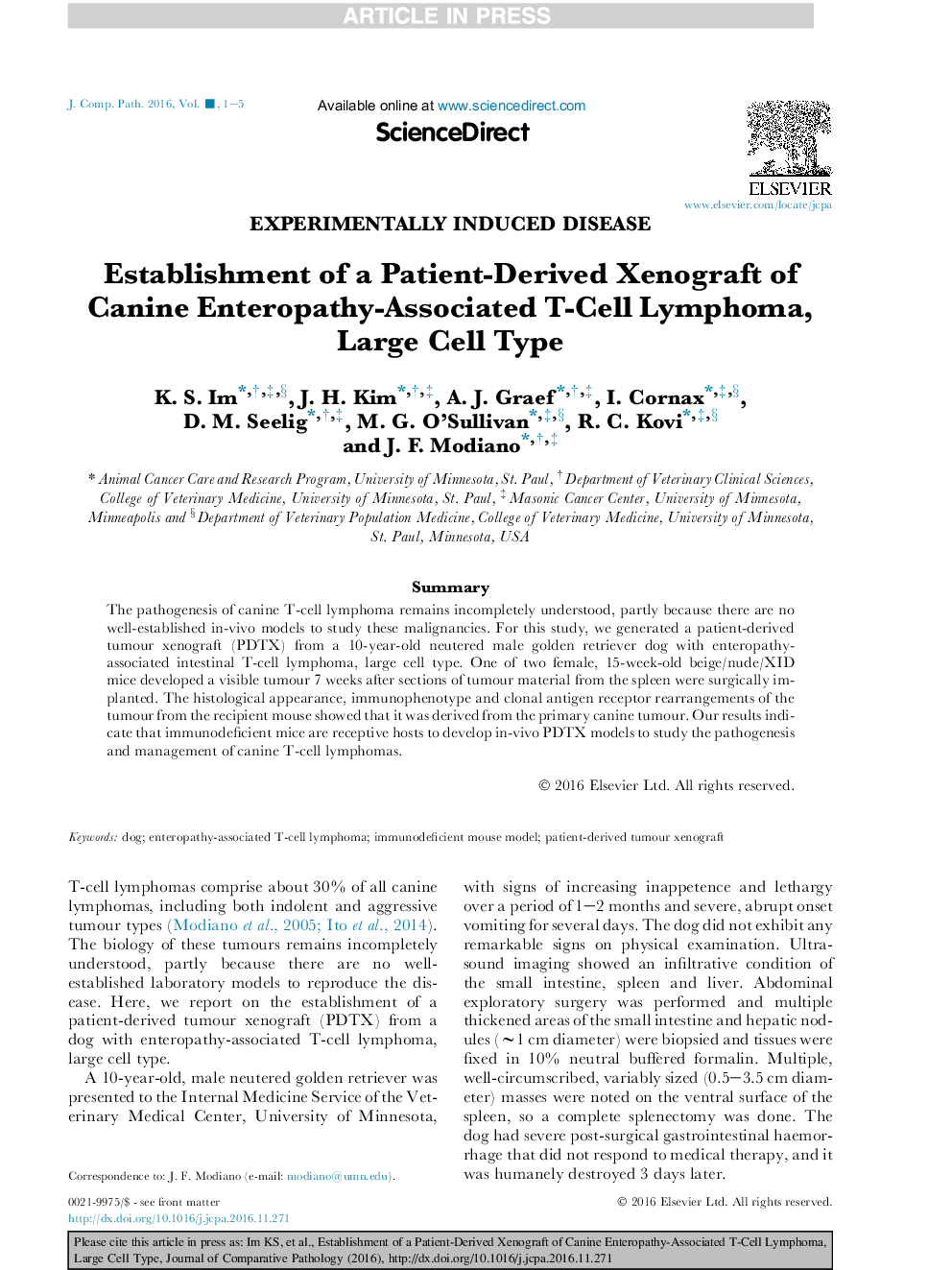| Article ID | Journal | Published Year | Pages | File Type |
|---|---|---|---|---|
| 5541492 | Journal of Comparative Pathology | 2017 | 5 Pages |
Abstract
The pathogenesis of canine T-cell lymphoma remains incompletely understood, partly because there are no well-established in-vivo models to study these malignancies. For this study, we generated a patient-derived tumour xenograft (PDTX) from a 10-year-old neutered male golden retriever dog with enteropathy-associated intestinal T-cell lymphoma, large cell type. One of two female, 15-week-old beige/nude/XID mice developed a visible tumour 7 weeks after sections of tumour material from the spleen were surgically implanted. The histological appearance, immunophenotype and clonal antigen receptor rearrangements of the tumour from the recipient mouse showed that it was derived from the primary canine tumour. Our results indicate that immunodeficient mice are receptive hosts to develop in-vivo PDTX models to study the pathogenesis and management of canine T-cell lymphomas.
Related Topics
Life Sciences
Agricultural and Biological Sciences
Animal Science and Zoology
Authors
K.S. Im, J.H. Kim, A.J. Graef, I. Cornax, D.M. Seelig, M.G. O'Sullivan, R.C. Kovi, J.F. Modiano,
